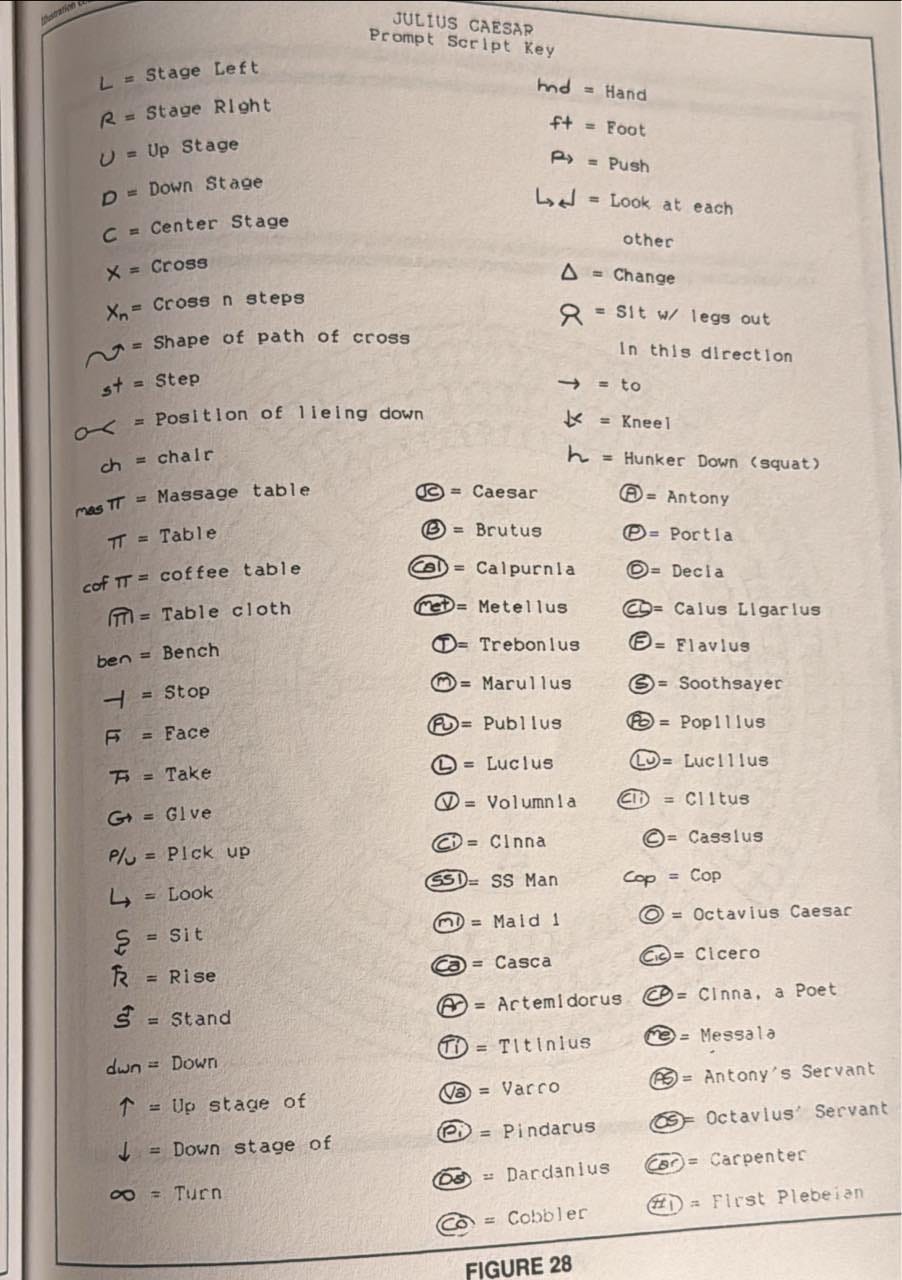Segways, Selfies, and Slurs
Plus: Ophelia's Got Talent (and a helicopter)
This newsletter has footnotes.1 If you prefer not to scroll down, click on the email headline to read in-browser and they will appear when you click on them. I use open access and gift links whenever possible but you may encounter paywalls. If you do, make like Romeo and o’erperch them or check the archive. If you enjoy this newsletter, please send it to your friends, romans, countrymen using the button below or your most reliable friar.
Quick Links
Shakespeare is Having a Moment in Ukraine.
“The most popular Shakespeare play in Ukrainian theatres since the full-scale invasion has been “Macbeth,” Chuzhynova said. Its tale of the rise and fall of a tyrant speaks to the moment – most obviously calling to mind Vladimir Putin, but plenty of other authoritarian leaders around the globe.”
“Know your slurs” via Benjamin Dreyer.
Romeo and Juliet with heavy machinery in Estonia.
"The characters in the play on this occasions are excavators, a front loader, a mixer, a fire engine, buses and other larger vehicles, but there are also some smaller ones too. In the role of Julia, for instance, a red Ford Ranger 4x4 box car is making its stage debut,"
Very Bad Wizards, my favorite philosopher-and-psychologist-arguing podcast, finally stopped flirting with Shakespeare (mostly via Borges) and sat down with Macbeth.
If you’re near D.C. in February, go see The Winter’s Tale ballet. Does it have all-together too much pastoral nonsense? Yes.3 Does it also have my favorite ending of any production I’ve ever seen? Also yes.
How to describe Ophelia’s Got Talent?
An “all-female and (mostly) all-nude phantasmagoria [Editor’s Note: this link is VERY NOT safe for work] about the mythic and social significance of women and water, two and a half hours without intermission or any plot structure beyond escalating scale and craziness… [featuring] “cheek piercing, a woman getting a tattoo, a corps of naked dancers attacking a helicopter…”
This Romanian Shakespeare caravan features a play called Shakespeare Reduced, “inspired by” The Reduced Shakespeare Company.
Will Sturdivant on Great River Shakespeare and his new books.
This WSJ review of the Folger is grumpy about…ADA access?
“One ambition of the new Folger, it seems, is to topple Shakespeare from his monumental status. Rather than mount stairs to a grand temple-like portal, visitors now descend on ADA-compliant ramps leading through small gardens to lower-level side-entrances.”
“Ramps and elevators have been added for greater accessibility. They have even added a select number of bariatric seats for larger audience members…”
Twelfth Night details: 100 minutes, no intermission and: (bonus Folio selfie)
“When the twins finally have their long-awaited reunion, they speak Shakespeare’s lines in Swahili—their mother tongue, and one that nobody else in Illyria understands.”
Nataki Garrett Myers on “The Cost of Control.” via Be a Ladder Leader.
Kathryn Vomero Santos on Chicano literature and Shakespeare.
“…if I purposely drop in a reference to “The Tempest,” that feels like I’m trying to give my story some “unearned oomph,” trying to compensate for the fact that the story isn’t yet saying what it wants to say, by hitching its star to some ostensibly related work.”
Grace Pervades goes meta: (more)
An in-joke has Sir Henry refusing to stage the “ridiculous” As You Like It; Fiennes, in a season as an Irvingesque actor-manager, directs it on this Bath stage next month.
“A Montague-vs.-Capulet epic where the principal antagonist is gravity.”
Recommendations
“Who is this goat?! We need more of her!” via Audrey Cefaly.
“Outfit inspired by the French New Wave movement, pirates, and Westerns.”
“One day, I’d like to stop writing about the lack of women in creative leadership.”
An obituary for poet David R. Slavitt. His “Titanic” wrecked me (too soon?) and I still know it by heart.
I can only hear this (via Londonist) in the voice of the “Don’t Do That” guy:
“…more detailed examination of the materials that had been applied after the fire in 1984 revealed that the first two layers of facing material were not the acid-free tissue mentioned in the early correspondence, but that they were in fact nappy liners”.
Like this one.
And I like a fair bit of pastoral nonsense! Cue the bleats and give me a sheep shearing and I’m a happy camper. But *even for me* the “shepherds frolicking” bit goes on.
One of my favorites. Listen to Helen Mirren do the end. It’s the pause between “the great Achilles” and “whom we knew.” The mythic made familiar.
In this 17th c. edition the editor John Benson “changed masculine pronouns to feminine and introduced titles which directed sonnets to the young man to a mistress.”


